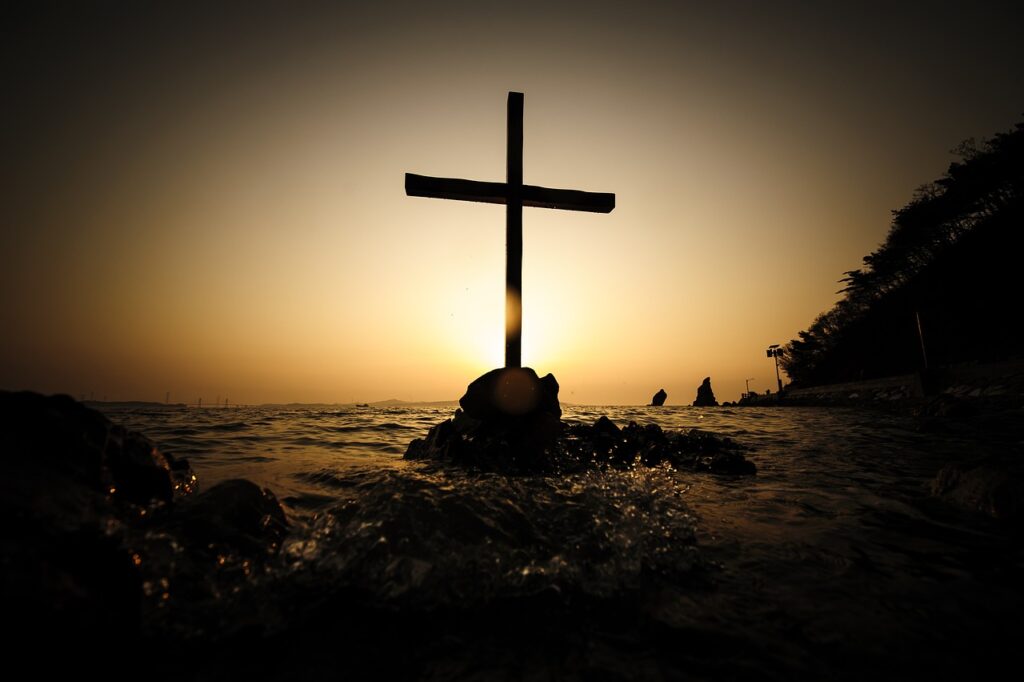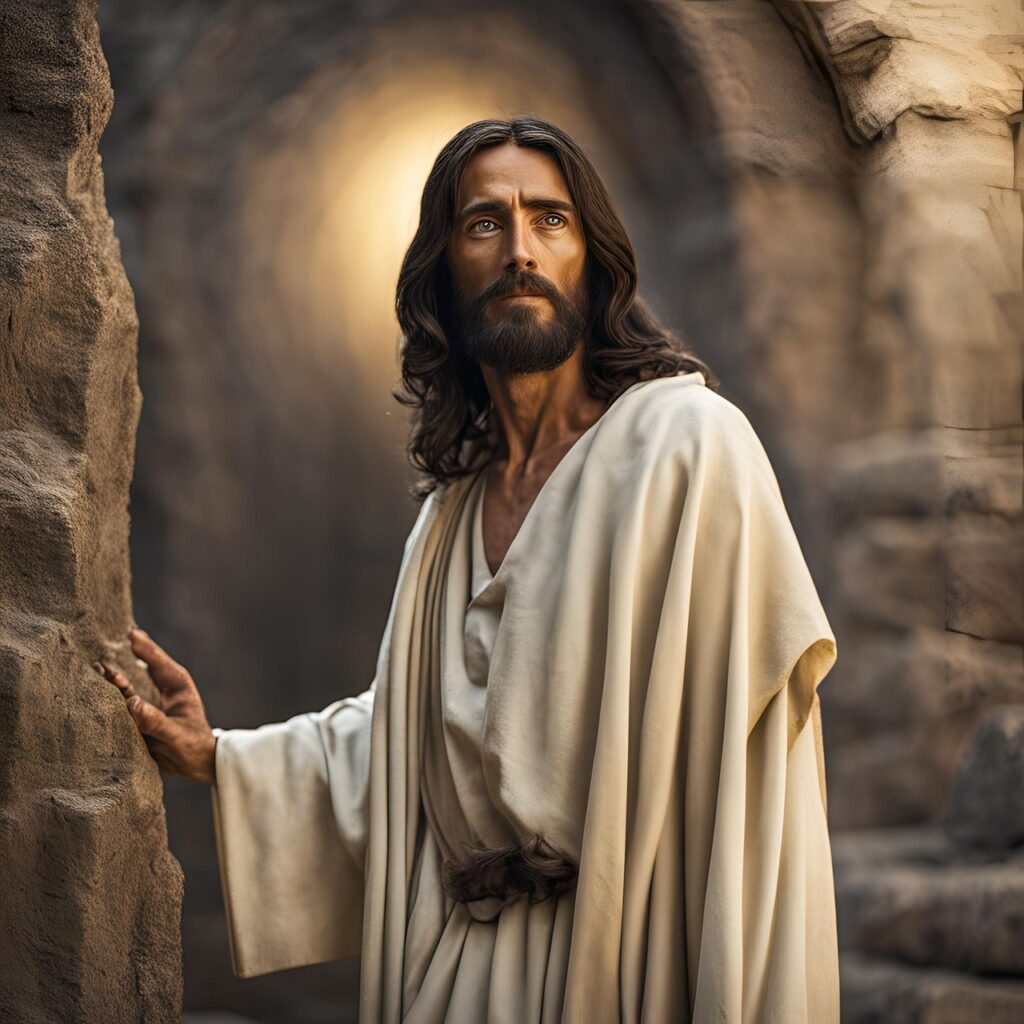Reflection by Bishop Enrique Díaz: Looking at the cross
IV Sunday of Lent

Mons. Enrique Díaz Díaz shares with Exaudi readers his reflection on the Gospel of this Sunday, March 10, 2024, titled: “Looking at the cross”
***
2 Chronicles 36, 14-16. 19-23: “The wrath of the Lord banished his people; His mercy set him free”
Psalm 136: “Your remembrance, Lord, is my joy”
Ephesians 2, 4-10: “Dead for sins, you have been saved by grace”
Saint John 3, 14-21: “God sent his Son into the world so that the world might be saved through Him”
Whenever someone tells me they don’t believe in God, I ask them why and the answer invariably goes to distorted images of a god no one could believe in: punishing, unjust, distant, and inhuman. Or, as a consequence of the way of life of some of us who call ourselves believers. But it is not difficult to discover in his heart a desire for truth, justice and the common good that leads him to reject what he considers an abuse of the person. The gospel of this day could enlighten us regarding the true image of God, discussed between an intellectual, an expert in the law, such as Nicodemus, and Jesus, who fully lives the experience of God, his Father. Nicodemus used to visit Jesus “at night”, which some judge out of fear or human respect for his companions, leaders of the Jews. However, it could also be understood as someone coming “from the night” toward the light. One who, gropingly, seeks to get out of the darkness or at least is determined to have a little light because what he has does not seem enough to him. Perhaps he intended to argue with Jesus about theology and laws, but Jesus prefers to talk about life and experience, and takes him to the heart of the problem: “Truly, truly, I say to you, unless one is born from above…” A new birth, a new way of living, a new way of believing.
Thus appears the phrase that many consider the center of the entire gospel of Saint John: “For God so loved the world that he gave his only Son…” and not only of the gospel, but the center of all our faith and the great news of all history: God loves the world. We often forget that God’s love is universal and that it reaches all of humanity, us and the world in which we live. And more often we also forget that the object of this love is for the world to have life and for each of us to have life to the fullest. Normally, when we talk about believing, a series of truths, dogmas and arguments come to mind, to which we must adhere without being very clear about them. But we can say that we have faith only if we believe primarily in love: if we believe that God loves the world, that he loves all men, that he loves each one of us. If we manage to experience this unconditional love of God. It is sad to note that many of today’s believers carry our faith as if by dragging them, heavily, and we are not able to discover and experience our faith as a source of authentic life, and we are content to live half-heartedly. Neither fear, nor condemnation, nor death, nor wanting to gain with effort something that we cannot, belong to the will of God. God’s will is for us to have life in abundance and true life.
Disconcerting for many is that the cross appears next to this advertisement. What sense can it have to look at a crucified person in our society, besieged by pleasure, comfort and maximum well-being? The cross speaks of a beaten but victorious love; humiliated but surrounded by glory; betrayed and always faithful. Let us not forget that the crucified man is a righteous man and that he did it out of love. When Christians worship the cross, we do not extol suffering, immolation or death; but the love, closeness and dedication of a God who wanted to share our life and our death to the core. “Being lifted high” is not the expression of a dominating power, but the consequence of a full surrender to love. The believer finds salvation by “looking” in the direction of the cross of Christ. But to be faithful to the Crucified is not to masochistically seek suffering, but to know how to approach those who suffer, showing solidarity with them to the last consequences. Discovering the greatness of the cross is not finding a fetish and uniting in its pain, but knowing how to perceive the liberating force that is contained in love when it is lived in all its depth. Christ has come so that all people in Him may have life and full life.
And there will be no full life while children consume themselves from hunger with their bulging bellies, even if we pray a lot and have many crosses on our chests; and there will be no full life, while the fields and forests are plundered with impunity, filling the hands and coffers of a few; and there will be no full life while the goods are only enough for a few, while the rest must settle for the crumbs. From the cross lived with love must spring a serious commitment so that our people have life, a fight for true justice and an opening of the heart to share the little or much we have so that others can enjoy a little of life. Without the cross of love and sharing, the fullness of life for all would be just a dream. Perhaps today it is urgent to remember, in the midst of mistreated, frightened and bloodied people, that only RESURRECTION awaits a “crucified” life, lived with the same spirit of love, brotherhood and solidarity with which Jesus lived.
How do I experience in my daily life this face of “God who loves the world so much…? What commitment does contemplating the cross of Jesus lead me to? What am I doing so that those close to me and all peoples have a full life?
Our God, who on the cross of your Son Jesus has left the most beautiful sign of love, teach us to live our faith with such dedication that it leads us to build a new world where there is the full life that you want for all our brothers. Amen
Related

Reflection by Bishop Enrique Díaz: The Lord’s mercy is eternal. Alleluia
Enrique Díaz
27 April, 2025
5 min

After Eight Days Jesus Arrived: Commentary by Fr. Jorge Miró
Jorge Miró
26 April, 2025
3 min

The Perspectivas del Trabajo Foundation is founded with the aim of promoting virtues for professional development
Exaudi Staff
25 April, 2025
2 min

Reflection by Bishop Enrique Díaz: Alleluia, alleluia
Enrique Díaz
20 April, 2025
5 min
 (EN)
(EN)
 (ES)
(ES)
 (IT)
(IT)

